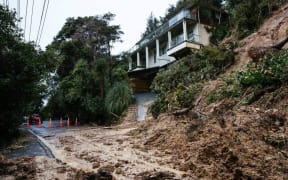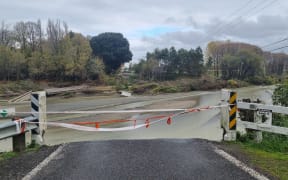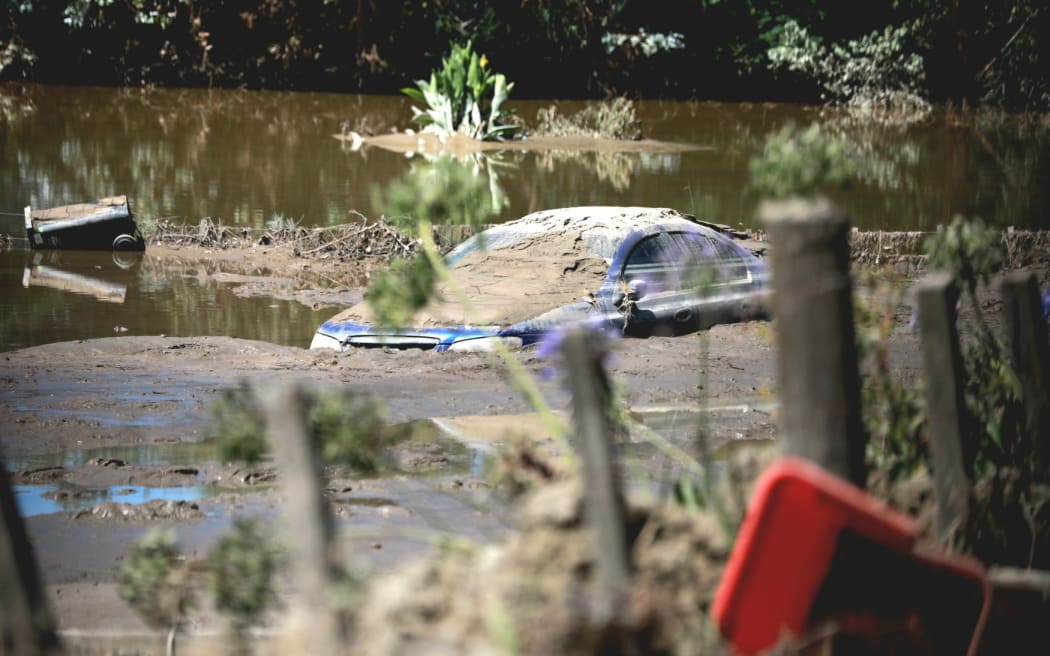
Esk Valley after Cyclone Gabrielle. Photo: RNZ/ Nick Monro
Public Private Partnerships would only add cost to stopbanks and other flood protection schemes, the council chairperson leading a bid for government co-funding says.
Greater Wellington Regional Council chairperson Daran Ponter said they knew from experience that private companies would just clip the ticket on what are significant public-good assets.
But all seem to agree the projects will be vital for helping keep insurance available and affordable for residents and councils alike.
Insurance costs rising
All but three of the regional and unitary councils have put forward a proposal for a roughly $200 million top-up of government funding for 80 flood protection projects around the country.
The pricetag is a fraction of the $1 billion spent on cyclone and flood recovery in last year's Budget, and smaller than the request presented to the Labour government in 2022.
Finance Minister Nicola Willis' response was to "encourage you to continue to engage with the Department of Internal Affairs".
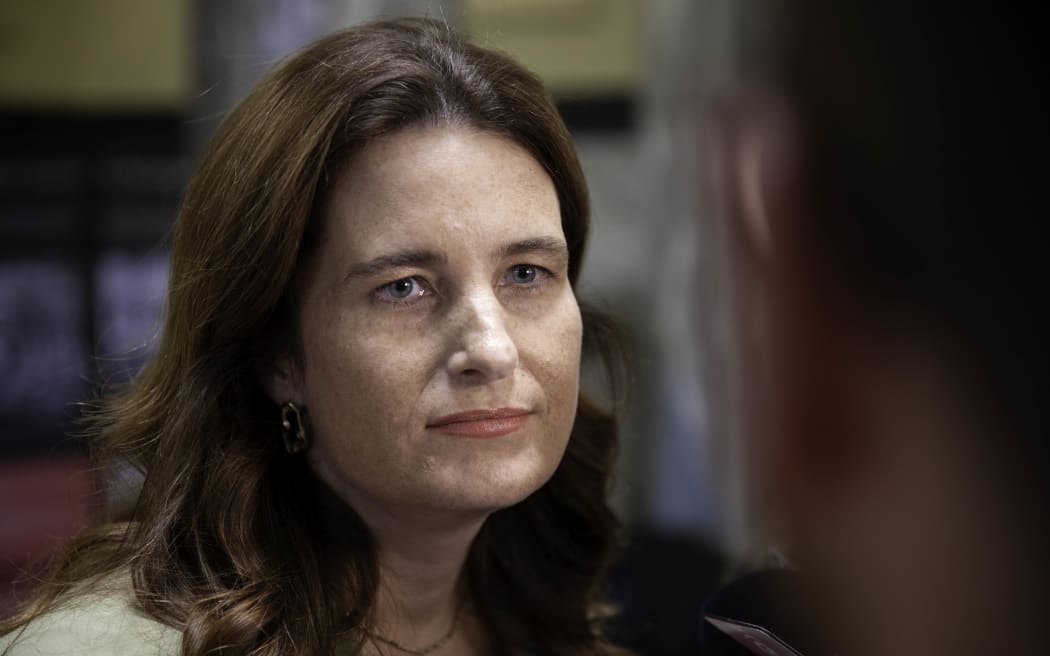
Finance Minister Nicola Willis. Photo: RNZ / Angus Dreaver
The councils have already completed the consenting and set aside the money for the other 40 percent of the cost of the projects.
With many rates rises already well into the double digits, they say their communities cannot afford to pay the rest in the short term, and the projects will be delayed up to 20 years if the government does not come to the table.
Their report warned insurance was becoming increasingly difficult for residents to afford, pointing to what they said was the "imminent risk of insurance withdrawal" if flood protection was not in place.
Insurance Council chief executive Tim Grafton - who is being replaced in the job by former consumer affairs minister Kris Faafoi this month - told RNZ he did not agree it was "imminent".
If nothing was done, however, it would eventually make insurance more expensive and possibly unavailable in high-risk areas.
"If there are areas of high risk [with] insufficient protection put in place to reduce the risk, and - as I said - climate events become more impactful and more frequent, then insurance will typically respond by changes to the level of premium to reflect the risk.
"[They] may also respond to increasing the level of excess - that is, the amount the insured would pay before having access to their insurance cover."
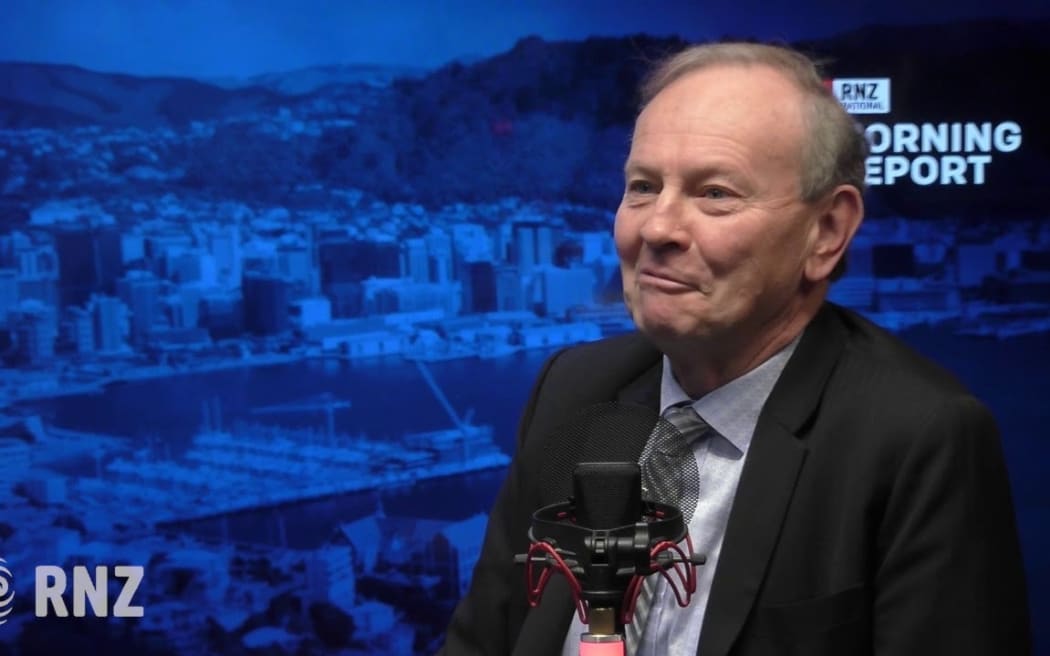
Insurance Council chief executive Tim Grafton speaking on Morning Report (file photo). Photo: RNZ / YouTube
"Ultimately, if nothing is done in some areas then, you know, there's been a lot of work on managing retreat from areas where it's not possible to defend against intolerable risk - and so you can lead to situations where insurance might not be available."
Grafton said insurance was certainly still available in New Zealand - and more so than in many other countries - but he acknowledged premiums for house insurance had risen significantly in the past two years.
"There may be some insurers that are less willing to provide cover in some areas - so that's probably the more likely situation that we're in today.
"Construction, inflation, reinsurance costs - that's the insurance that insurers buy from overseas - all of those factors feed into it ... but also the massive events of early last year: Auckland Anniversary floods and Cyclone Gabrielle, where insurance claims will be approaching $4 billion."
He said it made good economic sense to be investing in flood protection.
"Clearly if no protection is put in and in the face of more frequent and severe climate impacts, then the risk will go up. And insurance will respond through higher premiums and the like."
Public Private Partnerships just 'clipping the ticket' - Ponter
Grafton said the councils were right to be calling out the need for funding for those kinds of projects, and something "definitely" needed to be done.
"I think the regional councils have done a great job in outlining how they see the problem and presenting the costs and recognising that there are areas of the country where the rateable base is so small that it's just simply not possible for those regional councils to be able to afford to undertake the work that's required," he said.
He had another idea for where the money could come from, however.
"Clearly funding is a major issue for central and local government and perhaps we might need to be thinking about broadening the funding base and looking at how there can be more public private partnerships."
Willis and Local Government Minister Simeon Brown rejected RNZ's requests for an interview.
In a written response, however, Brown seemed to support a move towards public private partnerships.
"Local government has primary responsibility for flood risk management. I expect councils to be engaging and working with the owners of private and public infrastructure to provide appropriate levels of flood protection," he said.

Local Government Minister Simeon Brown. Photo: RNZ / Angus Dreaver
"Councils should also investigate all available options to determine a funding pathway for flood protection including contributions from the private sector who benefit from flood protection."
But Ponter - who has been leading the councils' proposal - said the use of PPPs had already been considered "and discounted on the basis that there is nothing really for the private sector to add here other than cost".
He said the protection works were "significant public good assets" and private companies would just be taking the proceeds and adding to the price of the works. Regional councils do the work as part of their core business, he said, and the government and councils could do it cheaper.
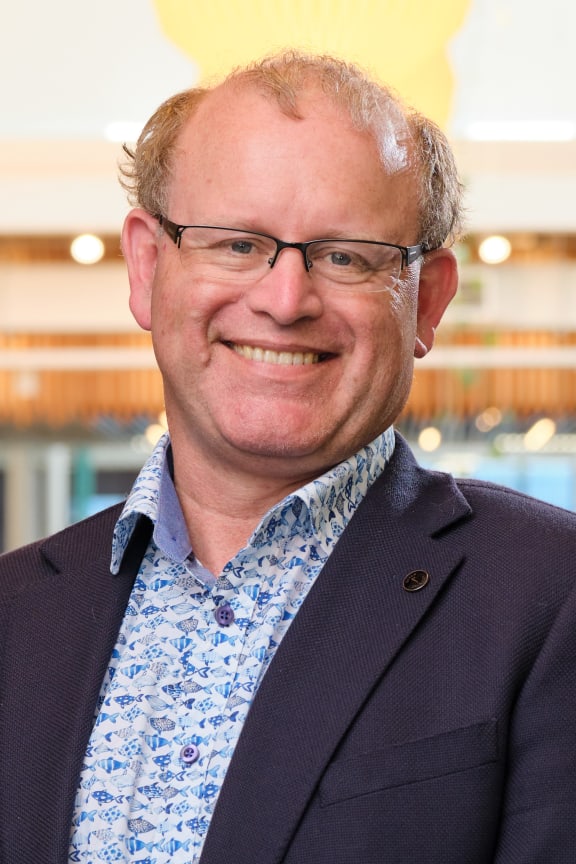
Greater Wellington Regional Council chairperson Daran Ponter (file photo). Photo: Shanon Stevens / Greater Wellington
"The only area where a PPP may be able to benefit regional councils is in the provision of equity of cash to do those works, and the reality is that both the regional councils and the Crown can borrow money at a cheaper rate than the private sector could.
"If we involve the private sector, they would be effectively clipping the ticket and add into the price of these works."
He said the council was gun-shy about involving private capital after its previous experiences.
"We were heading that way with Let's Get Wellington Moving. We're having difficulties in relation to the Riverlink project ... we stood on the sidelines and witnessed the issues in relation to Transmission Gully.
"Local government has its own problems and many frustrations from the public about how we operate - I don't want to add to that by adding in, unnecessarily, the private sector into this set of arrangements."
He said it was possible private funding could help councils fund the works, "but we're asking for the government to make that investment at a lower cost".
"I'm not convinced that bringing in large PPP-type arrangements with large companies is going to actually add to that. It will add to their bottom line and it will benefit their shareholders, but it's not going to benefit ratepayers and taxpayers."
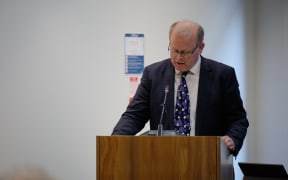
![NZ Defence Force/supplied
[57] An aerial view of the eastern end of Westport during the July 2021 flood.](https://media.rnztools.nz/rnz/image/upload/s--BS6Ege2I--/ar_16:10,c_fill,f_auto,g_auto,q_auto,w_288/v1676944005/4LD8J25_20210718_NZDF_P1024180_057_2_scaled_jpg)
